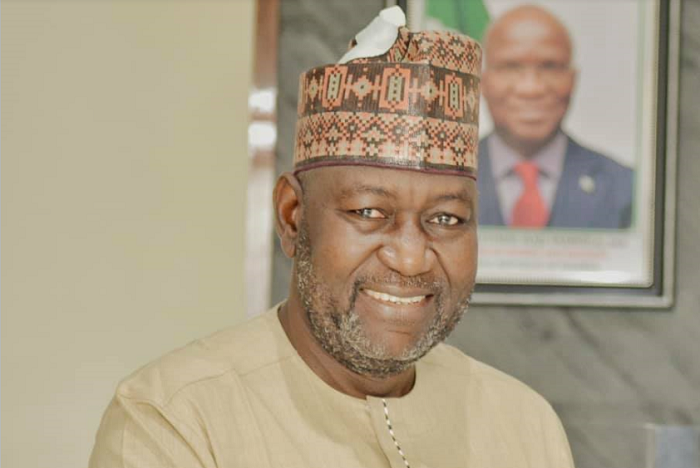Nigeria’s federal minister of power, Engr. Abubakar D. Aliyu has unveiled four renewable energy policies to foster renewable energy growth in the country. He made the disclosure to power stakeholders during the Nigeria Energy Conference currently holding at Landmark Event Center, Lagos.
During a speech read by Temitope Fashedemi, the permanent secretary, the federal ministry of power, the minister said the present administration was working towards ensuring that Nigerians benefit from the right energy policies.
“We are developing regulations, policies, and setting up institutions to minimize challenges associated with investing in the power sector. In this regard, we are championing the establishment of affordable, reliable, and sustainable energy for our growing population,” Engr. Aliyu says.
He outlined the four renewable policies as follows; national renewable energy and energy efficiency policy, national renewable energy action plan, national energy efficiency action plan and sustainable energy for all action agenda.
He told stakeholders that the policies have instruments with adequate fiscal incentives for potential investors, these include tax and duty waivers, competitive procurement of renewable energy projects, feed-in tariffs, viability gap funding, and many more.
He also talked about the vision 30-30-30 which is targeted at achieving 30 gigawatts of electricity by 2030, from multiple energy sources, with at least 30% contribution from renewable energy sources. This was earlier announced by Nigeria’s vice president Prof Yemi Osinbajo, in February 2021, according to ThisDay.
According to Engr. Aliyu, the private sector plays a role in attaining energy access goals for the country, while the government will work to establish an investment-friendly environment through the right policies and incentives.
“Collaboration with the private sector and development partners is essential in accelerating our efforts towards sustainable energy supply,” he told attendees at the event.
What this means
- Nigerians are in need of adequate power supply, in order to increase economic growth and productivity
- The federal ministry of power is collaborating with private sector companies to undertake power projects across the country, to increase energy access, especially in remote areas
- These policies outlined by the power minister will factor into Nigeria’s energy transition plan from 2022 to 2060.
- Nigeria will experience exponential growth in the renewable energy space between 2022 and 2030, backed by private sector investments and government policy implementation.
Why energy access is crucial
The minister in his speech said energy is one of the most important components of development, and the per capita utilization of electricity, is indicative of a nation’s level of development. Electricity access rates in Nigeria was at 55.4% as of 2020. Low electricity access reduces business productivity rates in the country. Due to the usage of alternative sources of power supply particularly diesel generators, a lot of businesses incur higher operational costs and contribute massively to greenhouse gas emissions in the country.
Climate change commitments
Engr. Aliyu said that in its updated nationally determined contributions, Nigeria is committed to reducing its greenhouse gas emissions (GHGs) unconditionally by 20% and conditionally by 47%, in accordance with the Paris Agreement. In a conversation with Nairametrics, environmentalist, Chris P. Nwachukwu said the government will make its job of reducing GHGs faster, if they make use of their tools to create public awareness, so Nigerians can be aware of how carbon emissions are emitted and adopt behaviours that will foster a reduction in greenhouse gases.
Bottomline
- The present administration says it is committed to embracing new business models and creating jobs and using homegrown skills to build a future where Nigerians have access to energy on all fronts.
- The government believes that public-private partnerships are a clear demonstration of the competence of the private sector in the development of their policy instruments.
- According to the honourable minister, Nigeria currently has the highest rate of solar rural mini-grids deployment in sub-Saharan Africa thanks to the implementation of capital subsidies and regulations, which is incentivizing the private sector to bring in significant equity funding for project development.
What you should know
- The Nigeria Energy conference is an event focused on increasing power sector capacity in the country.
- The conference agenda is also focused on finding real-world solutions and incentives for investors in the gas and metering ecosystem of the power sector.
- The conference began on Tuesday, September 20 and will end on Thursday, September 22.
